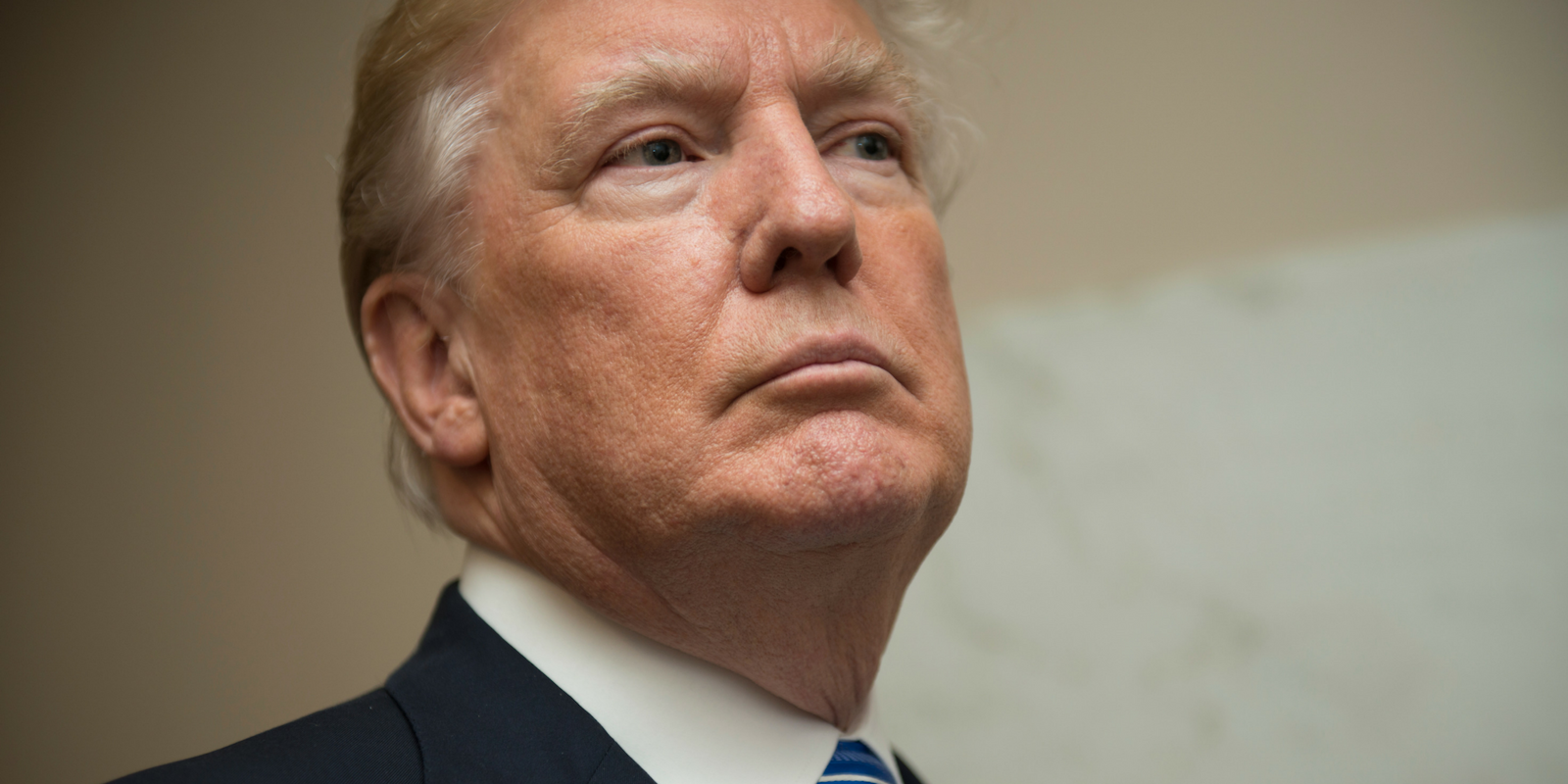Today’s the 27th anniversary of the Americans with Disabilities Act (ADA), the federal civil rights law that provides discrimination protections to people with disabilities in employment, government services, and public accommodations, and more. Following tradition set forth by Presidents George W. Bush and Barack Obama, President Donald Trump proclaimed today to be “a day in celebration” of the law’s anniversary.
“Americans are justifiably proud of the ADA and its accomplishments, but more can be done to protect the rights and dignity of Americans living with disabilities. Disabled Americans in the workforce already contribute substantially to our Nation’s productivity and prosperity,” Trump’s proclamation reads. “We must continue to empower them by breaking down obstacles that prevent their full participation in the public and economic affairs of our Nation.”
However, despite Trump’s appreciative sentiment of Americans with disabilities, his actions have taken a different tune. Two hours prior to the Office of the Press Secretary pushing out Trump’s ADA proclamation on Tuesday, Trump released a statement congratulating the Senate’s narrow vote in favor of debating a health care replacement for the Affordable Care Act.
“I applaud the Senate for taking a giant step to end the Obamacare nightmare. As this vote shows, inaction is not an option, and now the legislative process can move forward as intended to produce a bill that lowers costs and increases options for all Americans,” the president’s remarks read. “The Senate must now pass a bill and get it to my desk so we can finally end the Obamacare disaster once and for all.”
After the debate vote, the Senate failed to pass the Better Care Reconciliation Act (BCRA) late Tuesday, but both the BCRA and the House’s version of a healthcare bill, the American Health Care Act (AHCA), call for deep cuts to Medicaid, the program for low-income people currently used by 15 million Americans with disabilities.
While the AHCA cuts Medicaid funding by $834 billion over 10 years, subsequently dropping 14 million people from the program, the BCRA cuts more funding over a longer period of time. Unable to cover the loss, states may subsequently downsize their Medicaid programs and drop enrollees.
These cuts, championed by President Trump, would negatively affect disabled Americans (as well as lower-income families or people in nursing homes). He’s stated on Twitter, time and time again, that he supports these proposals, and will sign just about anything to repeal and replace Obamacare, subsequently putting the livelihoods of people with disabilities at risk.
Which is why when Alice Wong, an activist with disabilities from San Francisco and founder of the Disability Visibility Project, read Trump’s proclamation on the ADA’s 27th anniversary, she laughed.
“I believe the administration is the exact opposite of advancing disability and civil rights,” Wong told the Daily Dot via email. “So I laughed when reading the ADA proclamation from the White House, only to keep myself from crying, since this was on the very day the Senate voted yes to pass the motion to proceed to begin the debate on the GOP healthcare bill.”
Wong founded the Disability Visibility Project, an online community and partnership with story preservation organization StoryCorps, as a means to amplify disability stories and culture. She was also appointed by President Obama as a member of the National Council on Disability from 2013–2015.
And while Trump has been in office for less than a year, Wong says she hasn’t seen any meaningful work from his administration for the disability community—mostly photo-ops, empty words, and hollow gestures, Trump’s proclamation being one of them.
“There’s nothing I can think of with a glimmer of significance that advances disability rights,” Wong said.
Even a cursory glance through the tweets quoted with the hashtag #CripTheVote, Wong’s co-partnered nonpartisan online movement engaging people with disabilities in disability policy, reveals the anxiousness and frustration surrounding the decisions.
Guess what Trump would do today if he truly cared about people with disabilities or the ADA?
— Rebecca Vallas ✨ (@rebeccavallas) July 26, 2017
DENOUNCE ACA REPEAL & ANY CUTS TO MEDICAID https://t.co/YL9gQ1n63K
105 days until 2017 Election Day, 11/6/17
— Andrew Pulrang (@AndrewPulrang) July 26, 2017
469 days until Midterm Elections, 11/5/18
1,197 days until General Elections, 11/3/20 #CripTheVote
https://twitter.com/emksky/status/890029281669197824
Trump’s support for Republican-led healthcare bills promising to cut Medicaid, which Wong herself has written about relying upon for the New York Times, has only fueled a fear and furiousness that she and many disabled folks she knows share regarding losing such benefits. As Wong has previously written, access to Medicaid has allowed her to hire attendants and live independently without the help of her family.
Without community-based Medicaid services, Trump may have to forget about “breaking down obstacles that prevent…full participation in the public and economic affairs of our Nation” for people with disabilities, and ” fostering an environment that provides all Americans with the opportunity to pursue their American dream,” as his proclamation championed.
“Too many people do not understand what Medicaid does. In the push to decimate spending through block grants and caps, community-based services will be one of the first impacted since they are optional,” Wong said. “This means people like myself with high-care needs may face cuts in services that will force us to live in a nursing home. Not everyone has a great family or nest egg to cover these costs.”
